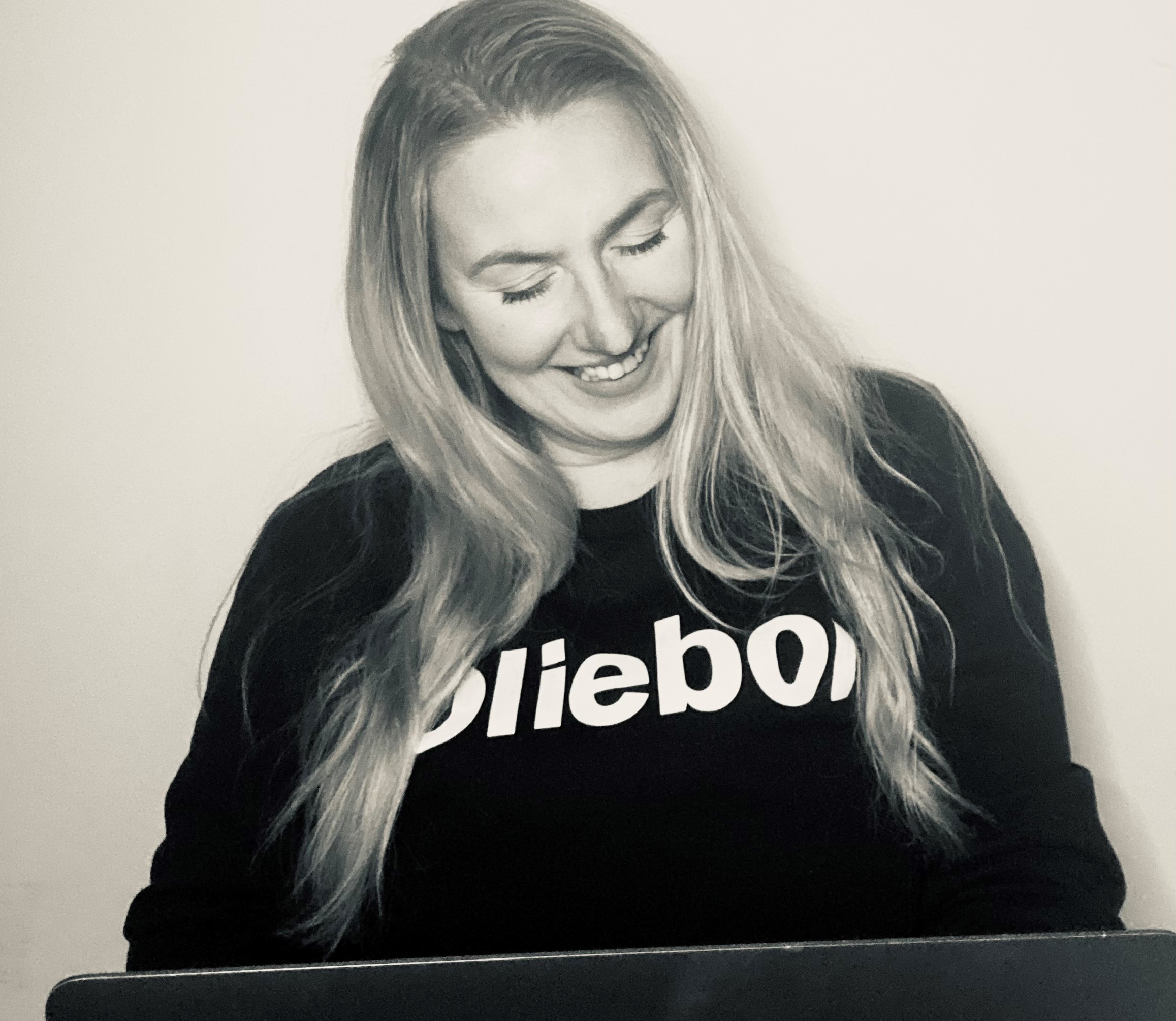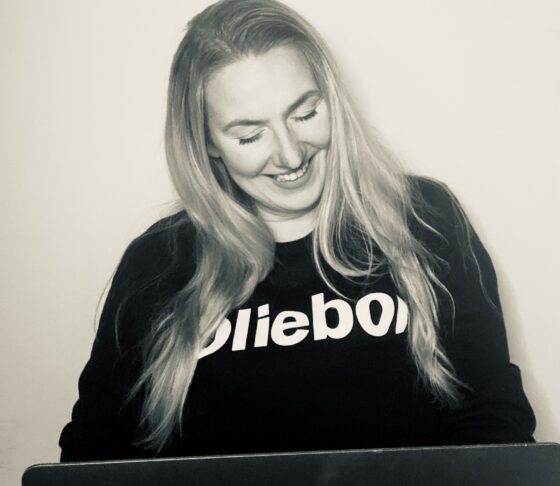‘Having a baby isn’t a medical procedure here, it’s just part of life’


Irish national Eva McLaughlin (43) moved to Amsterdam from Dublin in 2008 to work in the music industry. She’s a huge fan of the Dutch maternity care system and oliebollen and a great believer in the power of community and the support it brings.
How did you end up in the Netherlands?
I moved to the Netherlands in 2008 for work in my previous career in the music industry. I met my now husband, who is Dutch, two years into that and that is why I stayed.
My conditions for moving to Amsterdam with my company were that someone had a place for me to live in because I already knew that this city was phenomenally hard to find accommodation in. Once I came here and had an apartment and had a bike, I felt like I’d landed, and everything was fine thereafter.
But because of my job, I wasn’t actually here a lot. I didn’t have a pet and so I immediately started volunteering at the Poezenboot cat sanctuary in Amsterdam. Monday mornings, I was in there. That for me was a great way to start my week.
How do you describe yourself – an expat, lovepat, immigrant, international etc?
At the end of the day, I’m just Irish and I happen to be in Amsterdam. I still feel very Irish. My husband tells me that when I speak to family and friends back home, he can tell because my accent comes back very thick. When we land in Dublin it’s even ‘worse’, he says!
How long do you plan to stay?
I’ve lived in about five countries and I’ve never really gone, ‘this is where I definitely want to live’. It’s just a case of being in the present and you never really know what your future is. Amsterdam is such a cosmopolitan, international city and it’s really close to home anyway. It’s only an hour’s flight.
The support that parents get here from the government − with child care subsidies, postnatal care, and the community and [the international playgroup] Robbeburg, that has all helped to solidify that this right now is a good time to be here.
The international community is continually growing. We don’t have family here, so we’re actually creating our own community and we’re growing it as each person adds something that they are missing. That has been a huge help. When you are away from home, having had your child, and you don’t have family or friends living anywhere near you, I think that’s when you realise ‘this is what other parents need’ and you tend to lean on each other more.
You become a lot more involved in the community. We support each other that way, by providing services or just meeting up with each other. So, never say never for the future, but this is where we are, and this is where my child will be raised.
Do you speak Dutch and how did you learn?
I can understand better than I can speak. Prior to Covid, I took courses nearly every single year in all the different forms, like the official language schools or online or local community centres, student teachers… But every time I invested in it, my next job as a freelancer was always in English so I never really actually got to immerse myself properly.
But now, with GiftGuild, for example, I have to go out and visit these stores and most of them are in Dutch, so I am attempting to continue my conversations in Dutch. So I am still working on it, but it is a slow process.
What’s your favourite Dutch thing?
I can’t help myself, but it’s oliebollen! Honestly, I’m not a big doughnut fan, but it’s just the fact that it’s a limited supply – it’s like a psychological bias. Apparently, it’s only supposed to be for December, but now you can get them from October, maybe even September, right through to February or something. But I hold off so I can only have it in the month of December, so it’s a huge treat.
How Dutch have you become?
When you’re living in Amsterdam, there are so many internationals that live here, that I don’t think I’ve become Dutch at all. In Ireland, you also cycle your bike, and food is very similar – you get your potatoes, veg and meat. And I definitely don’t have the Dutch directness that they’re well known for!
Which three Dutch people (dead or alive) would you most like to meet?
The Dutch have a phenomenal history, but I’ve chosen to forward-face. I would rather meet people who are alive right now, actually making actions that could help the world in a better way.
I’ll start with Julie Munneke-Tromp. She’s the founder of Tiny Library, a rental platform where you can rent everything you need for a baby. It’s her way of helping parents be more sustainable and environmentally friendly. You can get most of the brands you want, but you don’t have to buy them and then deal with storage or selling them. This is extremely useful for expats who just need to rent something for a couple of months.
The next one is Steef Fleur, the founder of Billie Wonder, who is championing organic, ethical and fun-designed diapers. In my journey of becoming a parent, and also working with Robbeburg and having GiftGuild with clients, I see that people are genuinely interested in washable diapers, but they are also terrified because they know they will have to clean out the poop, and they think back to the 70s and cloth diapering and the mess and the smell.
Steef created a platform to help people buy them and now she’s actually designing her own. I think it’s great because she’s providing accessibility and help with something that people are nervous to attempt.
Number three is Simone Brummelhuis. Her resume would be really hard to condense. She has a very rich background. She is all about supporting female entrepreneurs. She founded the food ordering platform IENS [now The Fork], The Next Women, and Borski Fund, helping to secure finance and create a gender balance in business. I would like to give her my business model and get her honest input.
What’s your top tourist tip?
Get out of Amsterdam. Go to all the cities like Utrecht, The Hague or Rotterdam. I love the fact that I got to stand outside the house that Vermeer painted in Delft. It still stands, people still use it. And you’re just like, ‘wow!’. You can travel around the Netherlands and see pieces of art in real life. It’s just a case of getting out. Jump on a train and go somewhere else!
Tell us something surprising you’ve found out about the Netherlands
Totally on topic: the kraamzorg! A kraamverzorgster is a trained specialist who comes into your home to take care of the mother and her baby in its first week of life, doing all the health checks that are required and helping to support the mother.
Having a baby isn’t a medical procedure here, it’s just part of life. They’re like: ‘You had your baby, congratulations. It’s three hours later, now go back home!’ I thought that was incredible. It’s such a different perspective. It’s such a delightful surprise and I had such a great kraamverzorgster as well.
Because my friends and family couldn’t buy anything locally and didn’t speak Dutch, we ended up getting, I think, eight bouquets of flowers in one week. It was such a waste. We ended up giving some of our flowers to our kraamverzorgster. That’s when I got the idea for GiftGuild, a registry that supports local businesses and includes services. Sometimes having a photographer, a laundry service or a doula who could help you out, would be a lot better gift than flowers, rompers or a book.
If you had just 24 hours left in the Netherlands, what would you do?
I’m going to keep it local. I’d go and grab breakfast at Greenwoods on the Singel, enjoy walking around the Nine Streets and the Jordaan area. I would then end up at the American Hotel on the Leidseplein for a high tea because I’ve been there so many times and I just love the location – it’s very art deco. Next I would take an evening cruise, have dinner at De Kas, and then, if it’s a nice warm evening, end up having cocktails at the SkyLounge to look at the city.
Eva was talking to Deborah Nicholls-Lee
Thank you for donating to DutchNews.nl.
We could not provide the Dutch News service, and keep it free of charge, without the generous support of our readers. Your donations allow us to report on issues you tell us matter, and provide you with a summary of the most important Dutch news each day.
Make a donation